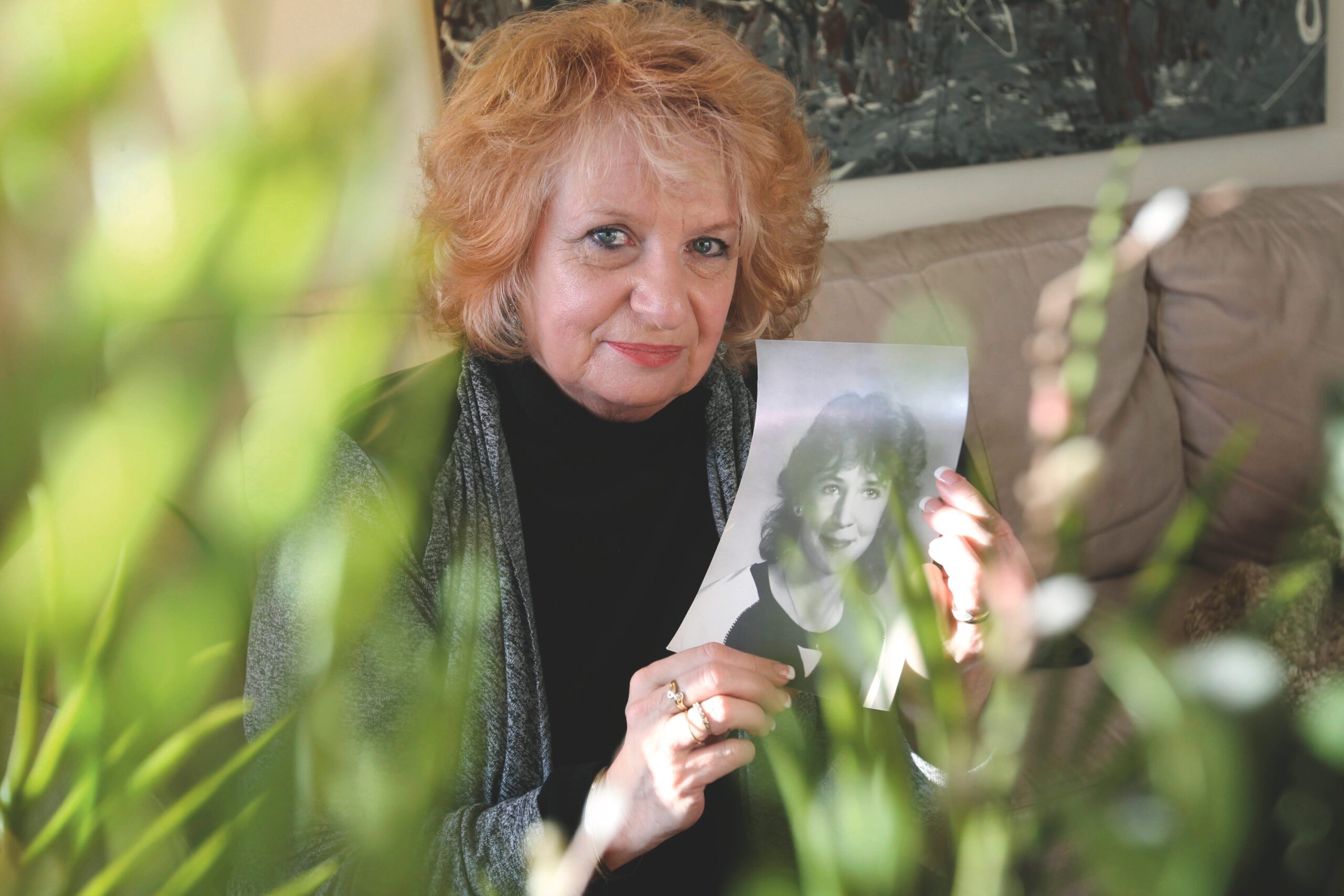In 1984, Wilma Derksen’s 13-year-old daughter, Candace, went missing on her way home from school in Winnipeg. Her body was found weeks later. It took another 22 years for a suspect to be charged, and he received a life sentence. But in 2017, a second trial found him not guilty.
Even at the onset of their impossible grief, Wilma and her husband, Cliff, chose to forgive the person who had murdered their daughter — whoever that person would turn out to be. Wilma has since been a leading advocate for making forgiveness a defining part of living. Her latest book, Dispelling the Clouds: A Desperate Social Experiment, was published last year. She spoke by phone with Paul Douglas Walfall.
Paul Douglas Walfall: You and your husband faced what would be the worst nightmare of any parent. How did you move beyond hurt, anger and wanting revenge?
Wilma Derksen: On the day Candace’s body was found, we stood at the bedroom door. We felt the presence of trauma on our bed. Cliff felt it was reptilian; I saw a vicious wolf. It was animalistic. It was all our fears manifested on the bed.
At our bedroom door, we said we are going to forgive. In that moment, the trauma left the bed. In the morning, we thought that this was a bit of a miracle. It was not complete, but for that moment, on the first night, it gave us peace.
PDW: How do you forgive when so much is taken from you?
WD: You do not forgive in one big leap. It does not spare you the darkness. Fear, anger, stuckness or despair — these are instinctive. Each time we felt these, we would intentionally choose a different way; that is forgiveness.
Sometimes I was angry with God. Sometimes I was angry with the police for taking so long. I was also angry at myself for not picking her up that day. If I had done otherwise, she would be here. I found that I had to identify where the blame is going.
Sometimes it can be so bad that there is nothing you can do with it, but you can turn around and do something good for someone else. It does not have to be related. If there is a negative vacuum caused by evil, it is important to turn around and plant a flower in the middle of it. I am not saying that we did it all the time. It took baby steps, through a lot of years and a lot of agony.
More on Broadview:
- 3 books on how to forgive the unforgivable
- During COVID-19, former prisoners are re-entering a world with fewer supports
- Sister Helen Prejean on the fight to abolish the death penalty
PDW: What is forgiveness? How would you define it?
WD: It’s a counter-intuitive choice to begin a process of a positive, proactive way of dealing with things. It begins with that choice. The usual choices are flight, fright, freeze, despair — and yet there is another response. We will always do these, and there is nothing wrong with them. But we can turn it around. Another way of looking at it is love first and justice second. We can only do one thing at a time, so we must start with love. We must choose if we are going to do justice or going to do love.
Love by itself is permissive. Justice by itself is violent and abusive. We always need the two together, so we chose to love first. For when I love first, then I can do justice better.
We cannot get through trauma without forgiving. It offers us a very practical way of taking ugly stuff and turning it into some good. To be healthy and joyful again, you must deal with the ugly stuff in a recycling way.
PDW: How does your understanding of forgiveness square with Jesus’ teachings?
WD: [My daughter’s murder] was always in my uppermost mind, in my present mind. If it stays there, then it interferes, influences and affects everything in my life. I cannot concentrate on anything else unless it is released from my present mind.
That is what Jesus was talking about. I feel that he was saying not to hold it against others in the present.
PDW: Many would describe you as a strong person to do what you did and continue to do.
WD: I do not think that I am strong. I am very vulnerable. Forgiveness comes from being weak. Forgiveness brings us to this place of vulnerability and not resisting. When we come to the place of saying this is what has happened, then it is humbling. I think it is God. “My grace is sufficient for you, for my power is made perfect in weakness” (2 Corinthians 12:9).
I need to embrace my weakness. It is a power that comes in weakness. When people say I am strong, I accept that this is what they see. But it is God who gives the strength to forgive.
PDW: How did your faith assist you through the time of Candace’s death and continuing to now?
WD: In Isaiah 30:21, God says, “I will be with you to guide you.” If I make a wrong turn, then I was assured that I would be corrected. That was not the way; try another path. Forgiveness is a beautiful way to live because you cannot fail. God forgives, and you forgive.
“Love by itself is permissive. Justice by itself is violent and abusive. We always need the two together, so we chose to love first.” — Wilma Derksen
PDW: Many of us in the church tend to believe that we have the franchise on forgiveness. Yet you have said that the church has much to learn about it. What does the church need to learn and why?
WD: If you look in the Bible, love comes first. Jesus always placed love first and judging as secondary. However, the church seems to have switched it around and placed emphasis on judging. There is so much emphasis on repentance and changing. And in that necessity of changing people, there is a judging of people. In judging people, we hurt people who are coming to the church needing love. We are saying to them that they are not good enough. We have gone wrong.
PDW: Last year, issues of racism took centre stage. What message does forgiveness hold for BIPOC and white peoples as we engage in racial justice?
WD: This is a tough one. Forgiveness means that wherever we are placed, we remain defenceless and vulnerable. Forgiveness says that we are going to love you. It levels the field, as I see God in you. We can only do it if we forgive because if we keep fighting, we will never have that conversation and stop the hurt.
***
Rev. Paul Douglas Walfall is a minister at First United in Fort Saskatchewan, Alta.
This interview has been edited and condensed for length and clarity. It first appeared in Broadview’s June 2021 issue with the title “Choosing to Love.”















